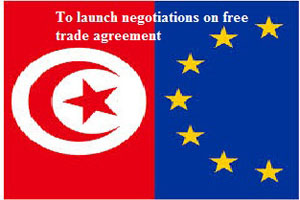
EU,Tunisia to launch negotiations on free trade agreement
YarnsandFibers News Bureau 2015-10-14 14:00:00 – TunisEU Trade Commissioner Cecilia Malmstrom announced the launch of the negotiations for a free trade agreement during a visit to Tunis and talks with Tunisian Trade Minister Ridha Lahouel and Prime Minister Habib Essid. The aim of the agreement is to improve market access opportunities and the investment climate and support ongoing economic reforms in Tunisia, it said on its website.
The European Commission said that the first round of talks will begin in Tunis Monday and last for a week. The agreement will build on the existing free trade area under the Euro-Mediterranean Association Agreement, which was signed 20 years ago but mainly focused on trade in goods.
The EU is Tunisia's largest trading partner, accounting for 57 percent of total commerce.
The agreement would open the European market wider to Tunisian goods, but Tunisian economists fear it could have a backlash on their country's struggling economy, arguing that it could force an opening of Tunisian markets and risk unfair European competition.
Economist Abdelbasset Sammari said that Tunisia risks loosing 40 percent of its firms if the DCFTA is implemented.
Another economist, Jameleddine Aouididi said in a recently published study that the EU had its eyes on natural resources found in Tunisia, such as phosphate and gas.
According to the European Commission, the Deep and Comprehensive Free Trade Agreement (DCFTA) would help support economic reforms in the North African country, which is trying to consolidate democracy after a 2011 uprising that ousted an autocratic regime.
As per EU figures, total trade between Tunisia and the European Union in 2014 reached around 20 billion euros ($22.8 billion). Trade was dominated by machinery and transport equipment but also included textiles and clothing products.
Market Intelligence
Ask for free sample Report

experience
Customer Base
dedicated team
Countries Served Worldwide









